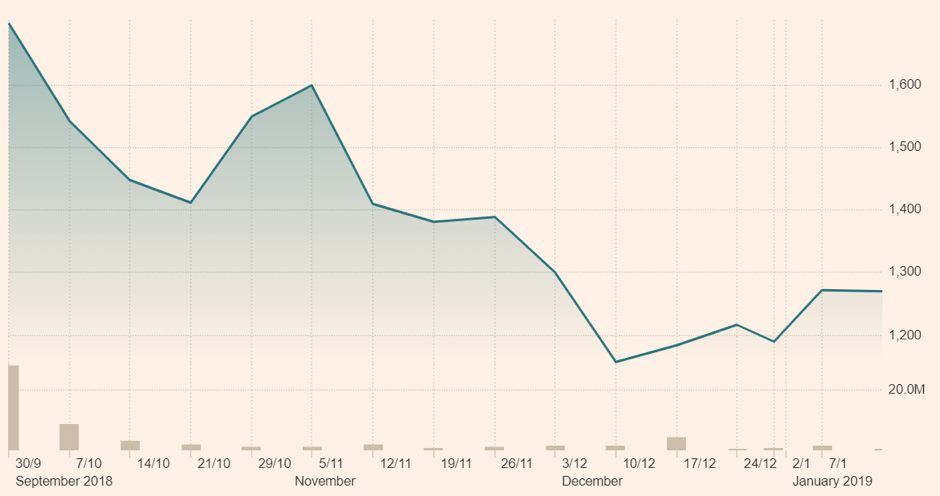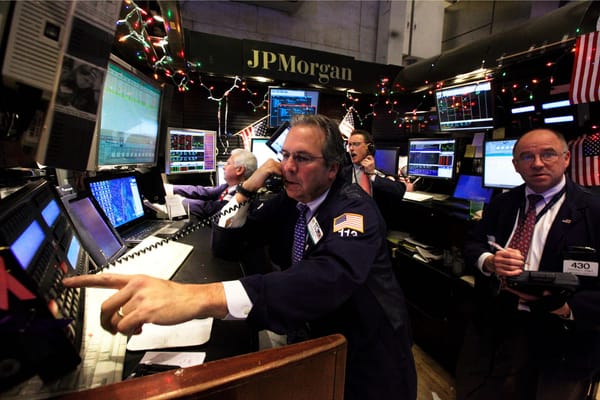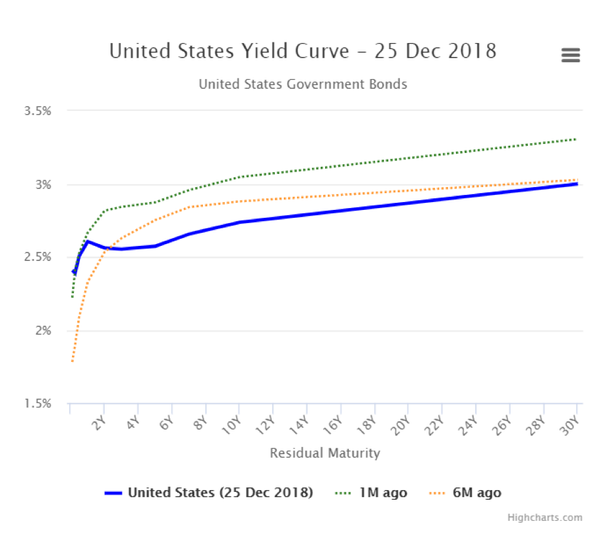The Spy Who Went Public: Aston Martin lists on LSE

On 3rd October 2018, the iconic British marque synonymous with James Bond debuted on the London Stock Exchange, a milestone for the historically troubled carmaker, with a past marred by several bankruptcies. The shares were priced at £19, valuing the company at £4.3bn. While most IPOs are traditionally capital raising operations, this IPO was a profit-taking exercise for its 2 largest shareholders, Italian private-equity group Investindustrial and Kuwaiti investment fund Investment Dar, who sold off a quarter of the company.
Slipping as much as 8 percent on the first day of trading, the price has dropped to a current low of £12.60. Peer-to-peer lender Funding Circle, which listed 2 days after Aston Martin, is down 28% from its listing price. The poor post-IPO performance of 2 high-profile flotations is symptomatic of the weaker IPO market inflicted by the spectre of Brexit, which could herald a period of low deal flow as on-going transactions are reconsidered. Jonathan Clatworthy, director of investment management at Arbuthnot Latham mentioned the “challenging valuations” of the UK market, citing a lack of track record to justify top level valuations. Aston Martin listed with the desire to achieve premium valuations like luxury brands Hermes International, LVMH and Italian rival Ferrari. A share price of £19 valued Aston Martin at 20 times earnings, close to Ferrari’s current 22 times earnings, despite Aston Martin having a lower profitability and poorer financial track record.
In contrast to the poor performance of its share price, Aston Martin reported stellar third quarter earnings, with revenues rising 89% from £156mn to £282mn. Profit before tax rose a staggering 933.3% to £3.1mn from £0.3mn. This growth was underpinned by strong sales in the Americas and Asia Pacific, including China, where demand for the DB11 derivatives and the new Vantage doubled sales amidst a slower Chinese market. Shifting of production volume to the cheaper Vantage and V8-engined DB11 derivative have dropped the average selling price per vehicle. The production of the brand’s first SUV (Sports-Utility-Vehicle), the DBX is on track for completion in the first half of 2019, which will strengthen the product range.
With Aston Martin on-track to double its production volume to 14,000 units within the decade, it has had to re-evaluate relationships with local component suppliers who cannot keep pace, prompting Aston Martin to look overseas for new partners. With the current German-made gearboxes and engines (V8 from Daimler and V12 from Ford), three-fifths of components are imported from Europe. This move signals a further reduction in the “British-ness” of the brand. Fans of the automaker, who take pride in hand-crafting each car in England, will be getting a lot less British for their buck.
CEO Andy Palmer, who breathed a “sigh of relief” when briefed in a late-night call on the Brexit deal, may be having a few more sleepless nights. Prime Minister Theresa May’s deal was rejected by the House of Commons on 15th January 2018. While Minister May returns to the drawing board, this setback leaves Aston Martin on tenderhooks as the possibility of a no-deal exit from the EU looms closer. An outcome that does not protect the UK’s access to the single market will introduce red tape and drive up cost by disrupting the complex integrated supply chains that feed the UK’s automotive industry. With 10% of people employed in the UK’s automotive manufacturing originating from somewhere else in the EU, such a blow will hamper the industry’s acquisition and retainment of foreign talent.
Carmakers have cautioned about these consequences. Jaguar Land Rover estimates job losses in the tens of thousands and intends to close one of its three UK plants. Toyota and BMW have also expressed intentions to shut their plants in the aftermath of the exit. In anticipation of messy customs, carmakers have stockpiled raw materials, with Aston Martin stockpiling engines since September 2018. The global market Aston Martin commands may insulate the company from weakness in the EU and UK, including the added cost of import and export tariffs on its vehicles. However, the disruption to its European supply chains could derail the company’s expansion plans. It seems Aston Martin and its UK-based peers, will just like Bond’s favourite drink, be in for quite a shaking.










